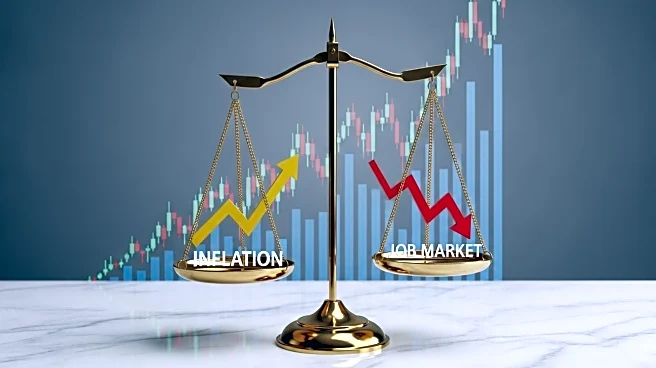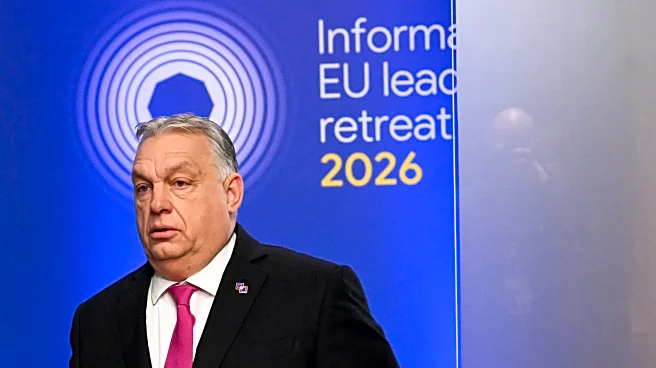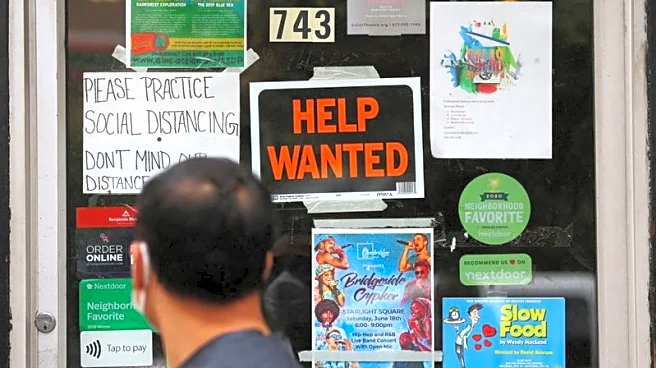What's Happening?
The Labor Department has released new data indicating a rise in inflation and consumer prices, alongside signs of a weakening job market. In August, employers added only 22,000 jobs, and revised figures show a job loss in June for the first time since 2020. Despite these economic challenges, the stock market is experiencing significant gains, with the Dow Jones Industrial Average increasing by over 600 points and major indexes reaching record highs. Investors are optimistic about potential interest rate cuts by the Federal Reserve, which has been cautious due to the impact of President Trump's tariffs on inflation.
Why It's Important?
The current economic situation presents a complex scenario for U.S. stakeholders. Rising inflation and a weakening job market could lead to reduced consumer spending, affecting businesses and potentially leading to further job cuts. However, the stock market's positive performance suggests investor confidence in potential Federal Reserve actions to lower interest rates, which could stimulate economic activity. The Federal Reserve's decisions will be crucial in balancing inflation control with economic growth, impacting businesses, consumers, and the broader economy.
What's Next?
The Federal Reserve is expected to consider interest rate cuts in response to the sagging job market and rising inflation. Such a move could boost economic activity by making borrowing cheaper, encouraging spending and investment. However, the Fed will need to carefully assess the impact of President Trump's tariffs and other economic factors before making a decision. Stakeholders, including businesses and consumers, will be closely monitoring these developments, as they could significantly influence economic conditions in the coming months.












